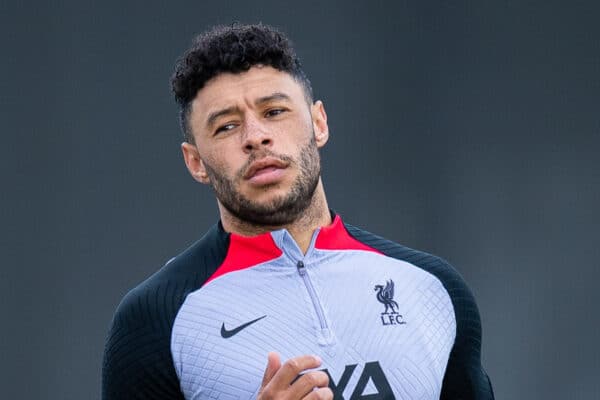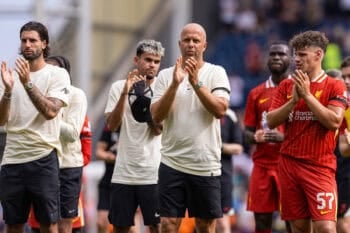We get the lowdown on Sean O’Driscoll, who is to be appointed as Liverpool’s new assistant manager.
Who is he?
O’Driscoll is 57 years old and the current England under-19s coach – a role he was appointed to just last September.
Does he have experience?
Well, yes and no.
He certainly has football experience, but has never coached in the Premier League or in Europe.
Given that former assistant Colin Pascoe was sacked after the club and Brendan Rodgers reportedly admitted to a lack of experienced personnel in his backroom staff, O’Driscoll doesn’t add the top flight experience that Pascoe lacked.
He has managed over 500 games, the vast majority with Bournemouth and Doncaster Rovers. His most recent managerial role was with Bristol City in 2013.
So he has experience in the lower leagues, but this is his first appointment in the top flight.
O’Driscoll’s Management Timeline
Bristol City: 14 Jan, 2013 to 28 Nov, 2013
Nottingham Forest: 20 Jul, 2012 to 27 Dec, 2012
Crawley Town: 16 May, 2012 to 20 July 2012
Nottingham Forest (assistant manager): 19 Jan 2012 to 16 May 2012
Doncaster Rovers: 08 Sep, 2006 to 22 Sep, 2011
Bournemouth: 19 Aug, 2000 to 10 Sep, 2006
What’s his preferred style of play?
He appears to be a 4-3-3 man – certainly the formation used with England under-19s most recently – so we can assume that Rodgers will return to his preferred formation next season.
Despite managing Football League sides throughout his career, he has – in general – had them playing expressive and expansive football.
The following quote from O’Driscoll certainly echoes the words of Rodgers:
“Sometimes you just need players to be brave and, as easy as it sounds to the man in the stands, having the bollocks to take a risk on a football pitch is one of the hardest things you can ask them to do.
“Playing safe maybe the easy option as it stops the onus being on them if they make a mistake but how many ‘safe’ teams have won trophies over the years?
“The way Spain and Barcelona play requires bravery, the way Bayern Munich play requires bravery, the way Swansea and Bournemouth play requires bravery, it’s just a different kind of bravery to what we typically view as bravery in this country.”
He also said this in the same interview, which resonates with the philosophy of Pepijn Lijnders – who is set to be promoted to first-team coach:
“Football intelligence is worryingly rare in this country and that stems from the coaching players have had at the youngest age where they are just told what to do, and don’t have to make decisions for themselves.
“Football intelligence only comes from a player understanding the game that is actually going on around him, not the game he wants to play in his head.”
Rodgers on O’Driscoll (October 2013):
“We need to stop blaming the players. The players get the blame in this country. No, it is the coaching. The problem is that the guys who are ’that type’ of coach you never hear of them really.
“Look at Sean O’Driscoll. He is one of the best coaches I have ever come across. He is working at Bristol City. He has never had a chance in the top flight. His teams were expressive, had movement, they were technical, but he will probably never get a chance at a higher level.”
Anything else?
Interestingly, he’s another fan of Dr. Steve Peters, the psychologist who still works at LFC. O’Driscoll explains:
“Psychology is still sneered at in this country, and seen as a weakness or an emotional crutch, but all the top Olympic sports swear by mental training. The work Dr Steve Peters has done with British Cycling has been universally applauded yet in football any intervention like that is still greeted with cynicism. Players have to be convinced it works because it’s alien to them. It makes no sense.”
He also appears to have admiration for Roberto Martinez and the work he did at Wigan Athletic.
He’s an advocate of the manager delegating responsibilities to his staff and trusting them. [td_ad_box spot_id=“custom_ad_3″]
O’Driscoll once said this about football supporters:
“I go to millions of games where people sit there and don’t support their team, they just moan and groan.
“Why do they bother going if all they’re doing is moaning at their team? I can’t see how that helps.”
He has a somewhat chequered history with the media and prefers to avoid the media spotlight where possible, probably making him far more suited to a coaching role than a management role.



















Fan Comments